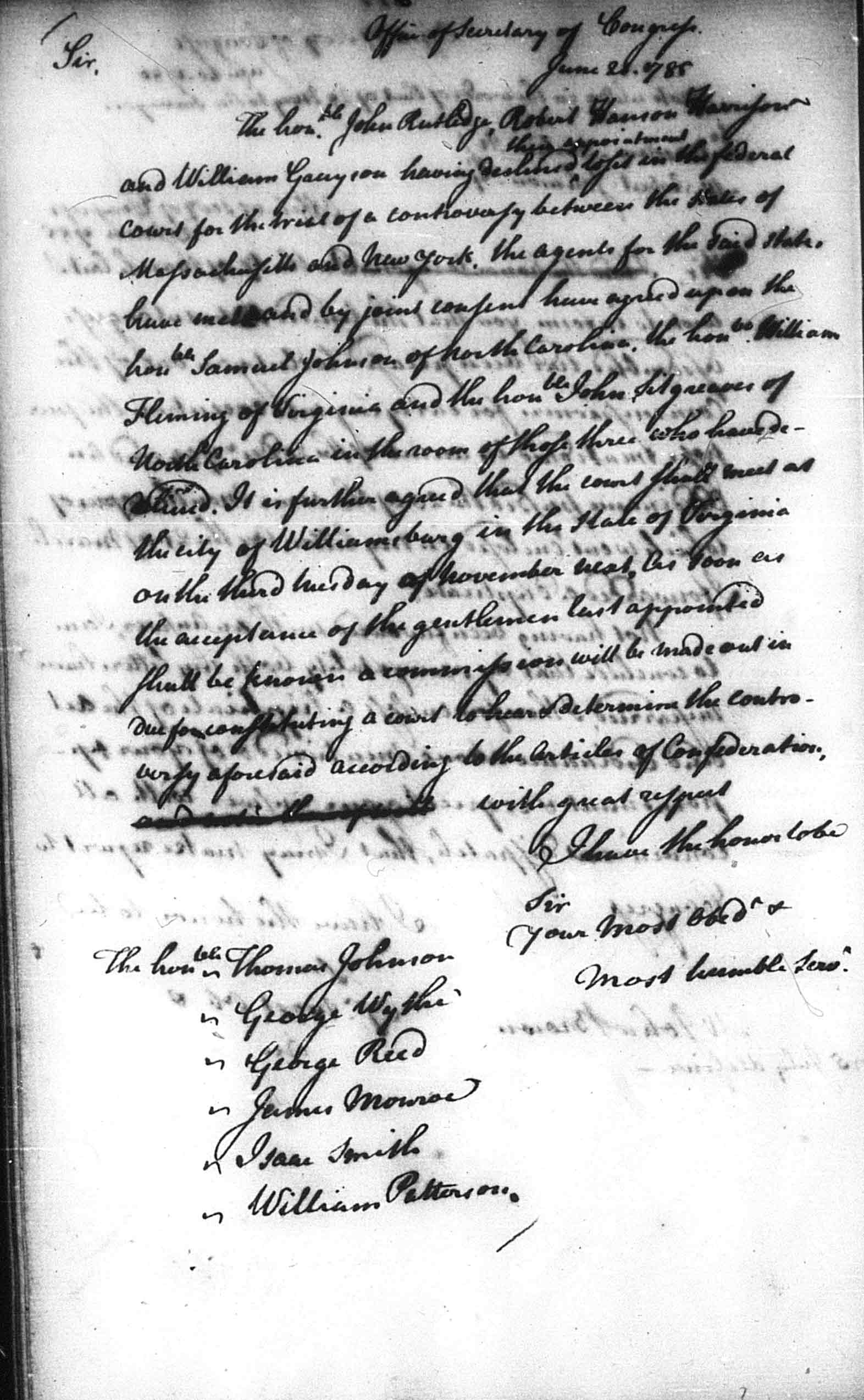Charles Thomson to Wythe et al., 21 June 1785
Massachusetts and New York went to Congress to settle a dispute over a piece of land between the Merrimac and Charles rivers.[1]. The two states had agreed on appointing John Rutledge, Robert Hanson Harrison, William Grayson, Thomas Johnson, George Wythe, George Read, James Monroe, Isaac Smith, and William Paterson to oversee the case. However, Harrison, Grayson, and Rutledge declined, so William Fleming, Samuel Johnson, and John Sitgreaves were appointed to replace them. Charles Thomson, the secretary of the Continental Congress, informed the selected group that the court would meet in Williamsburg, Virginia on the third Tuesday of November 1785 and that as soon as the three recently appointed members were approved, a commission would be made for a court to hear and determine the result of the dispute in accordance with the Articles of Confederation.
In 1787 it was belatedly noted that the matter had been resolved between the States without the need for a federal court in December, 1786, and the appointments were revoked.[2]
Letter text
Office of Secretary of Congress
June 21, 1785Sir,
The hon.ble John Rutledge, Robert Hanson Harrison, and William Grayson having declined this appointment to sit in the federal Court for the trial of a controversy between the States of Massachusetts and New York, the Agents for the said state, have by joint consent have agreed upon the hon.ble Samuel Johnson of North Carolina, the honble William Fleming of Virginia and the honlbe John Silgreaves of North Carolina in the room of these three who have declined. It is further agreed that the court shall meet at the city of Williamsburg in the State of Virginia on the third Tuesday of November next, As soon as the acceptance of the gentlemen last appointed shall be known, a commission will be made out in due form constituting a court to hear & determine the controversy aforesaid according to the Articles of Confederation. With great respect,
- I have the hon to be
- Sir
- Your most obed. &
- Most humble Servt.
The honble. Thomas Johnson
George Wythe
George Reed
James Monroe
Isaac Smith
William Patterson
See also
References
- ↑ Journals of Congress: 3d day of Nov. 1783 to 3d day of June, 1784 (Philadelphia: John Dunlap), 310.
- ↑ Hampton L. Carson, The Supreme Court of the United States: Its History, vol. 1 (Philadelphia: A.R. Keller, 1892), 75.
